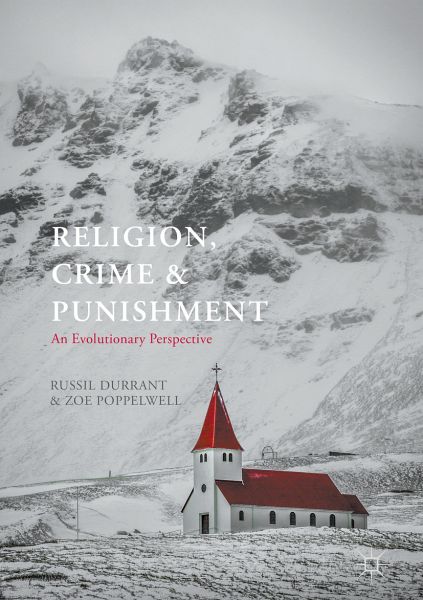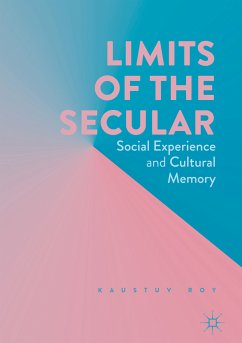
Religion, Crime and Punishment (eBook, PDF)
An Evolutionary Perspective
Versandkostenfrei!
Sofort per Download lieferbar
96,95 €
inkl. MwSt.
Weitere Ausgaben:

PAYBACK Punkte
48 °P sammeln!
This book provides a critical discussion of the way in which religion influences: criminal and antisocial behaviour, punishment and the law, intergroup conflict and peace-making, and the rehabilitation of offenders. The authors argue that in order to understand how religion is related to each of these domains it is essential to recognise the evolutionary origins of religion as well as how genetic and cultural evolutionary processes have shaped its essential characteristics. Durrant and Poppelwell posit that the capacity of religion to bind individuals into socially cohesive 'moral communities'...
This book provides a critical discussion of the way in which religion influences: criminal and antisocial behaviour, punishment and the law, intergroup conflict and peace-making, and the rehabilitation of offenders. The authors argue that in order to understand how religion is related to each of these domains it is essential to recognise the evolutionary origins of religion as well as how genetic and cultural evolutionary processes have shaped its essential characteristics. Durrant and Poppelwell posit that the capacity of religion to bind individuals into socially cohesive 'moral communities' can help us to understand its complex relationship with cooperation, crime, punishment, inter-group conflict and forgiveness. An original and innovative study, this book will be of special interest to criminologists and other social scientists interested in the role of religion in crime, punishment, intergroup conflict and law.
Dieser Download kann aus rechtlichen Gründen nur mit Rechnungsadresse in A, B, BG, CY, CZ, D, DK, EW, E, FIN, F, GR, HR, H, IRL, I, LT, L, LR, M, NL, PL, P, R, S, SLO, SK ausgeliefert werden.












